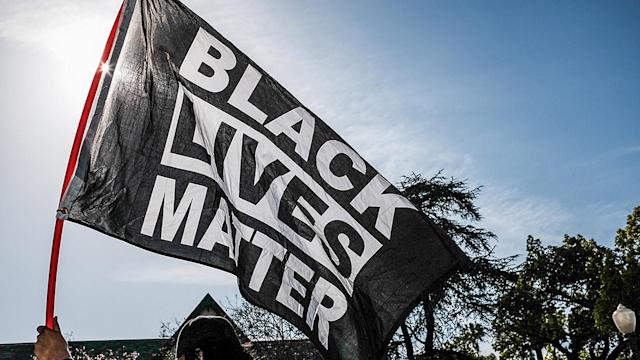The Black Lives Matter organization faced criticism and scrutiny after receiving millions of dollars in donations, prompting many to question what the movement’s leaders did with the funds. However, recent tax documents filed with the IRS uncovered surprising details regarding the foundation’s expenses, spending more than $37 million on grants, real estate, consultants, and other costs.
According to a 63-page 990 Form obtained exclusively by the Associated Press, the Black Lives Matter Global Network Foundation Inc. collected $42 million in net assets during its last fiscal year ending on June 30, 2021. However, the organization reportedly invested $32 million in stocks from the $90 million it received in donations, sparking racial justice protests in 2020. In addition, organizers say the investments would establish an endowment to ensure the foundation continues to operate as a voice for the Black community.
The tax filing shows nearly $6 million was spent on a Southern California home purchased by BLM leaders Patrice Cullors, Alicia Garza, and Melina Abdullah. In April, New York Magazine’s Sean Campbell discovered the property during a now-deleted YouTube video featuring the women as they honored George Floyd during the first anniversary of his death. The 6,500-square-foot Studio City mansion, which includes six bedrooms and bathrooms, a swimming pool, a soundstage, and office space, was referenced as a campus used for the Black Joy Creators Fellowship recipients, board secretary Shalomyah Bowers said. Instead, Cullors used the property to shoot content for her YouTube channel and allegedly spent the night after feeling unsafe in her own home.
Cullors was listed as an uncompensated founder and executive director in the report, despite resigning in May 2021. The foundation allegedly paid $140,000 in severance to Cullors before her resignation. Since then, ten local chapters claimed the 38-year-old became the executive director “against the will of most chapters and without their knowledge,” News Onyx reported.
YahNé Ndgo, an activist and former organizer with the BLM chapter in Philadelphia, said Cullors retracted her initial promise to permit grassroots organizers complete control of the foundation’s resources.
“When resources came in, when opportunities came in, (the foundation) alone would be the ones to decide who was going to take advantage of them, without having to take any consideration of the other organizers whose work was giving them the access to these resources and opportunities in the first place,” said Ndgo.
The filing also shows that Cullors reimbursed the organization $73,523 for a charter flight listed as foundation-related travel and $390 for holding two private events at the Studio City property. As executive director at the time, the filling shows that Cullors never held any board meetings. Several board members denied claims that she was given complete control over who to hire and how the donated funds were used.
“This 990 reveals that (the BLM foundation) is the largest Black abolitionist nonprofit organization that has ever existed in the nation’s history. What we’re doing has never been done before,” Bowers said.
“We needed to get dollars out to grassroots organizations doing the work of abolition, doing the work that would shift the moral tide of this world towards one that does not have or believe in police, prisons, jails or violence,” he said.
According to the tax filing, the organization distributed nearly $4 million in consultation payments to Bowers, Cullors brother, and her child’s father. BLM Global Network seemingly paid $2.1 million to Bowers Consulting, a firm run by the board secretary, between July 2020 and June 2021, Fox News reported. The foundation also dished out more than $1.9 million to Cullors family members, including $970,000 that was given to Trap Heals LLC, a company founded by Damon Turner, the father of Cullors’ child, and $840,000 to Cullors Protection LLC, a security firm owned by her brother, Paul Cullors, the documents show.
According to the outlet, this is the BLM foundation’s first tax filing, providing a detailed structure of its finances since incorporating in 2017. The organization was initially listed as a nonprofit charity and wasn’t required to disclose financial information until it became an independent 501(c)(3) nonprofit in December 2020.
The filing shows the organization still struggles with finding its footing in a space dominated by wealthy philanthropic individuals who are likely to be white.
“It comes across as an early startup nonprofit, without substantial governance structure in place, that got a huge windfall,” said Brian Mittendorf, a professor of accounting at Ohio State University. He reviews nonprofit organizations and their financial statements.
“People are going to be quick to assume that mismatch reflects intent,” he added. “Whether there’s anything improper here, that is another question. But whether they set themselves up for being criticized, I think that certainly is the case because they didn’t plug a bunch of those gaps.”
The tax filing did not provide information about the organization’s more significant donors.
“Transparency and accountability is so important to us, but so is trust,” said Cicely Gay, the BLM foundation chair. “Presenting (donor) names after the fact, at this point, would likely be a betrayal of that trust.”















